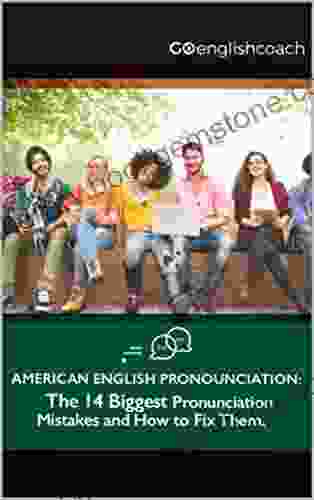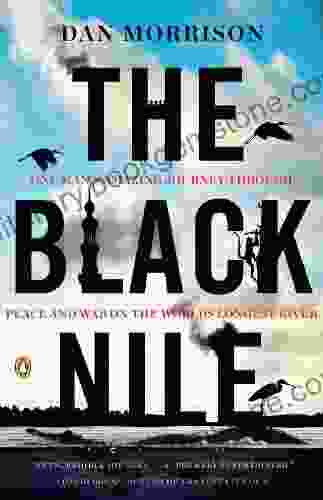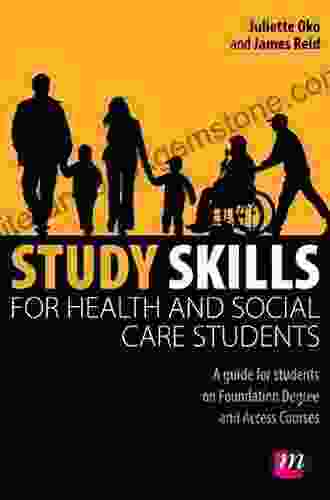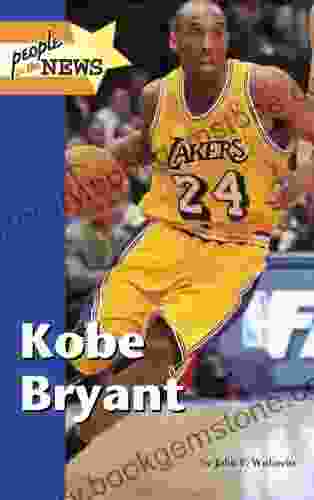14 Common Mistakes in English and How to Avoid Them

English is a complex and nuanced language, and even native speakers can make mistakes from time to time. However, there are certain common errors that are particularly prevalent, and it is important to be aware of them in order to avoid making them yourself.
1. Using the wrong tense
One of the most common mistakes in English is using the wrong tense. There are three main tenses in English: the present tense, the past tense, and the future tense. Each tense has its own set of rules, and it is important to use the correct tense for the time frame you are talking about.
5 out of 5
| Language | : | English |
| File size | : | 21475 KB |
| Text-to-Speech | : | Enabled |
| Screen Reader | : | Supported |
| Enhanced typesetting | : | Enabled |
| Print length | : | 21 pages |
For example, if you are talking about something that happened in the past, you should use the past tense. If you are talking about something that is happening right now, you should use the present tense. And if you are talking about something that will happen in the future, you should use the future tense.
2. Using the wrong pronoun
Another common mistake in English is using the wrong pronoun. Pronouns are words that take the place of nouns, and there are different pronouns for different people and things.
For example, the pronoun "I" is used to refer to yourself, the pronoun "you" is used to refer to the person you are talking to, and the pronoun "he" is used to refer to a male person. It is important to use the correct pronoun for the person or thing you are talking about.
3. Using the wrong preposition
Prepositions are words that show the relationship between a noun or pronoun and another word in the sentence. There are many different prepositions in English, and each one has its own specific meaning.
For example, the preposition "on" is used to show that something is located on top of something else, the preposition "in" is used to show that something is located inside something else, and the preposition "to" is used to show that something is moving towards something else. It is important to use the correct preposition for the relationship you are trying to express.
4. Using the wrong conjunction
Conjunctions are words that connect two words, phrases, or clauses. There are many different conjunctions in English, and each one has its own specific meaning.
For example, the conjunction "and" is used to connect two similar things, the conjunction "but" is used to connect two contrasting things, and the conjunction "or" is used to connect two alternatives. It is important to use the correct conjunction for the relationship you are trying to express.
5. Using the wrong adverb
Adverbs are words that modify verbs, adjectives, or other adverbs. There are many different adverbs in English, and each one has its own specific meaning.
For example, the adverb "quickly" is used to describe an action that is done quickly, the adverb "slowly" is used to describe an action that is done slowly, and the adverb "well" is used to describe an action that is done well. It is important to use the correct adverb for the meaning you are trying to express.
6. Using the wrong adjective
Adjectives are words that describe nouns or pronouns. There are many different adjectives in English, and each one has its own specific meaning.
For example, the adjective "big" is used to describe something that is large, the adjective "small" is used to describe something that is small, and the adjective "red" is used to describe something that is red. It is important to use the correct adjective for the meaning you are trying to express.
7. Making subject-verb agreement errors
Subject-verb agreement is a grammatical rule that states that the subject of a sentence must agree with the verb in number and person. This means that if the subject is singular, the verb must be singular, and if the subject is plural, the verb must be plural.
For example, the sentence "The boy runs to the store" is correct because the subject "boy" is singular and the verb "runs" is singular. However, the sentence "The boys run to the store" is incorrect because the subject "boys" is plural and the verb "run" is singular.
8. Using double negatives
A double negative is a grammatical error that occurs when two negative words are used in the same sentence. This can make the sentence confusing or even nonsensical.
For example, the sentence "I don't have no money" is incorrect because it uses two negative words ("don't" and "no"). The correct way to say this sentence is "I don't have any money."
9. Using split infinitives
A split infinitive is a grammatical error that occurs when an adverb is placed between the "to" and the verb in an infinitive. This can make the sentence sound awkward or informal.
For example, the sentence "I want to quickly finish my homework" is incorrect because the adverb "quickly" is placed between the "to" and the verb "finish." The correct way to say this sentence is "I want to finish my homework quickly."
10. Dangling modifiers
A dangling modifier is a grammatical error that occurs when a modifier does not clearly refer to a noun or pronoun in the sentence. This can make the sentence confusing or even nonsensical.
For example, the sentence "Walking down the street, the dog barked at me" is incorrect because the modifier "walking down the street" does not clearly refer to a noun or pronoun in the sentence. The correct way to say this sentence is "As I was walking down the street, the dog barked at me."
11. Misplaced modifiers
A misplaced modifier is a grammatical error that occurs when a modifier is placed too far away from the word or phrase it modifies. This can make the sentence confusing or even nonsensical.
For example, the sentence "The man ate the pizza with a big appetite" is incorrect because the modifier "with a big appetite" is placed too far away from the word it modifies ("man"). The correct way to say this sentence is "The man with a big appetite ate the pizza."
12. Using comma splices
A comma splice is a grammatical error that occurs when two independent clauses are joined with only a comma. This can make the sentence sound choppy or informal.
For example, the sentence "I went to the store, I bought some milk" is incorrect because it uses a comma splice to join two independent clauses. The correct way to say this sentence is "I went to the store. I bought some milk."
13. Using run-on sentences
A run-on sentence is a grammatical error that occurs when two or more sentences are joined together without a conjunction or punctuation mark. This can make the sentence difficult to read and understand.
For example, the sentence "I went to the store I bought some milk" is incorrect because it is a run-on sentence. The correct way to say this sentence is "I went to the store. I bought some milk."
14. Using fragments
A fragment is a grammatical error that occurs when a sentence is missing a subject, a verb, or both. This can make the sentence confusing or even nonsensical.
For example, the sentence "Because I was tired" is incorrect because it is a fragment. The correct way to say this sentence is "I was tired because I had been working all day."
These are just a few of the many common mistakes that can be made in English. By being aware of these mistakes and avoiding them, you can improve your writing and speaking skills and communicate more effectively.
5 out of 5
| Language | : | English |
| File size | : | 21475 KB |
| Text-to-Speech | : | Enabled |
| Screen Reader | : | Supported |
| Enhanced typesetting | : | Enabled |
| Print length | : | 21 pages |
Do you want to contribute by writing guest posts on this blog?
Please contact us and send us a resume of previous articles that you have written.
 Best Book
Best Book Page Flip
Page Flip Bookshelf
Bookshelf Literary loom
Literary loom Chapter
Chapter Bookish
Bookish PageTurner
PageTurner Bibliophile
Bibliophile Story
Story Inkwell
Inkwell Bookworm
Bookworm Labyrinth
Labyrinth Plot Twist
Plot Twist Prose
Prose Paperback
Paperback Storyteller
Storyteller Sanctuary
Sanctuary Fiction
Fiction Reading
Reading Chronicle
Chronicle Read
Read David Rapp
David Rapp Alex Halberstadt
Alex Halberstadt Brent Warner
Brent Warner Colson Whitehead
Colson Whitehead Griselda Sprigg
Griselda Sprigg 7th Edition Kindle Edition
7th Edition Kindle Edition Neil Legend
Neil Legend Albert F Simon
Albert F Simon Fethi Mansouri
Fethi Mansouri Harry Castleman
Harry Castleman Charles Sturt
Charles Sturt Jim Sayles
Jim Sayles Catherine Gavin
Catherine Gavin Stephen Hunter
Stephen Hunter Pauline Frommer
Pauline Frommer T I Lowe
T I Lowe Luca Caioli
Luca Caioli Fred Orr
Fred Orr Dr Ray Makar
Dr Ray Makar Tim Hannigan
Tim Hannigan Darril Fosty
Darril Fosty Jehad Al Omari
Jehad Al Omari Tania Romanov
Tania Romanov Dave Brosha
Dave Brosha Ace Atkins
Ace Atkins William Seabrook
William Seabrook Randy Scherer
Randy Scherer Rebecca Zanetti
Rebecca Zanetti Steve Oakes
Steve Oakes Alison Belsham
Alison Belsham Tony Pritchard
Tony Pritchard Cliff Seruntine
Cliff Seruntine Insight Guides
Insight Guides Mark Sheppard
Mark Sheppard Ash Davidson
Ash Davidson Mia Luna Celeste
Mia Luna Celeste Chukwuma Eleodimuo
Chukwuma Eleodimuo 1st Edition Kindle Edition
1st Edition Kindle Edition Anthony C Winkler
Anthony C Winkler Kirk Mcdonough
Kirk Mcdonough Mary Ann Hogan
Mary Ann Hogan United States Government Us Marine Corps
United States Government Us Marine Corps Stan Hall
Stan Hall Angie Papple Johnston
Angie Papple Johnston Ken Follett
Ken Follett Jacob Erez
Jacob Erez Jeremy Klaff
Jeremy Klaff Bruce Ansley
Bruce Ansley Dale F Bloom
Dale F Bloom Chris Jake
Chris Jake Bill Barich
Bill Barich General
General Er Sunil Batra
Er Sunil Batra Lee Daniel Edwin
Lee Daniel Edwin Keith Van Sickle
Keith Van Sickle Garfield Ellis
Garfield Ellis Emil Frlez
Emil Frlez Alice Steinbach
Alice Steinbach Rachel M Harper
Rachel M Harper Daniel Gordis
Daniel Gordis Evelyn C Rysdyk
Evelyn C Rysdyk Cpt Exam Prep Team
Cpt Exam Prep Team American Math Academy
American Math Academy Cate Kennedy
Cate Kennedy Richard Starks
Richard Starks Alannah Foley
Alannah Foley Matt Mosher
Matt Mosher Kathrin Lake
Kathrin Lake George Puckett
George Puckett George Robertson
George Robertson Erin Morgenstern
Erin Morgenstern Hannah Teter
Hannah Teter Adrian Wallwork
Adrian Wallwork Robert R Harr
Robert R Harr Print Replica Kindle Edition
Print Replica Kindle Edition Jane Nickles
Jane Nickles Charles Martin
Charles Martin Kathryn Bonella
Kathryn Bonella Bryce Stevens
Bryce Stevens Elaine Wilmot
Elaine Wilmot Jane Bottomley
Jane Bottomley Andrew Bushard
Andrew Bushard Go Books
Go Books Thad Vogler
Thad Vogler Aw Schultz
Aw Schultz Steve Rosse
Steve Rosse Lakshya Trivedi
Lakshya Trivedi Apricot Irving
Apricot Irving Farley Mowat
Farley Mowat Erin Gleeson
Erin Gleeson Jane Dupree
Jane Dupree Bill Jessome
Bill Jessome Michael D Alessio
Michael D Alessio Sarah Maclean
Sarah Maclean Matt Racine
Matt Racine Ken Hyland
Ken Hyland Angie May
Angie May Andrew Thompson
Andrew Thompson Paul Parker
Paul Parker Richard Sattora
Richard Sattora Cirrus Teacher Certification Exam Prep Team
Cirrus Teacher Certification Exam Prep Team Amy Grisak
Amy Grisak Carolyn B Heller
Carolyn B Heller Ahmad Al Sukaini
Ahmad Al Sukaini Anakwe Joseph Chimeleze
Anakwe Joseph Chimeleze Ocean Vuong
Ocean Vuong Yukari Mitsuhashi
Yukari Mitsuhashi Lisa Frederic
Lisa Frederic Jonothan Page
Jonothan Page Jacqueline Corricelli
Jacqueline Corricelli Patrick Dewitt
Patrick Dewitt Jonathan Grix
Jonathan Grix Dennis Chighisola
Dennis Chighisola Kay Bratt
Kay Bratt Roy Macskimming
Roy Macskimming Suketu Mehta
Suketu Mehta Andrew Hempstead
Andrew Hempstead Tessa Dare
Tessa Dare Dan Morrison
Dan Morrison John Connelly
John Connelly Vibrant Publishers
Vibrant Publishers Robert Nelson
Robert Nelson Heather Graham
Heather Graham Christopher Van Tilburg
Christopher Van Tilburg Mark Shand
Mark Shand Aly Madhavji
Aly Madhavji Allen O Bannon
Allen O Bannon Lisa Wingate
Lisa Wingate Alf Alderson
Alf Alderson P S Page
P S Page Caryn Jenner
Caryn Jenner Daniel Cleland
Daniel Cleland Frances Mayes
Frances Mayes T L Smith
T L Smith Alexa West
Alexa West Robert E Howard
Robert E Howard David Bramwell
David Bramwell Theodore Roosevelt
Theodore Roosevelt Heather Lende
Heather Lende Andrew Harvey
Andrew Harvey Ken Rossignol
Ken Rossignol Charles Cumming
Charles Cumming Helene Martensson
Helene Martensson Lauren Elliott
Lauren Elliott Louise Tucker
Louise Tucker Claire Craig
Claire Craig Rue Matthiessen
Rue Matthiessen John Luther Adams
John Luther Adams Jeffrey Weinstein
Jeffrey Weinstein Kathy A Zahler
Kathy A Zahler Cuba Conga
Cuba Conga Gary S Thorpe
Gary S Thorpe Hilal Ahmad
Hilal Ahmad Philip Donlay
Philip Donlay Helen Cooper
Helen Cooper Tim Notier
Tim Notier Lisa Marie Mercer
Lisa Marie Mercer David P Wagner
David P Wagner Peter May
Peter May Hans Hendrik
Hans Hendrik Irfan Ahmad
Irfan Ahmad Terry Pratchett
Terry Pratchett Stephen R Bown
Stephen R Bown Omar D Lewis Sr
Omar D Lewis Sr Xavier Wells
Xavier Wells Lisa M Bolt Simons
Lisa M Bolt Simons Annie Quigley
Annie Quigley Peggy J Martin
Peggy J Martin Christian Wolfe
Christian Wolfe David Ariosto
David Ariosto Patricia Cabot
Patricia Cabot James Rollins
James Rollins Rob Mccue
Rob Mccue Dr Alan Whitcomb
Dr Alan Whitcomb Rosemarie Allen
Rosemarie Allen Jan Hawkins
Jan Hawkins Steve Smith
Steve Smith Ascencia
Ascencia Walter Rhein
Walter Rhein Alexis Averbuck
Alexis Averbuck Larry Mcmurtry
Larry Mcmurtry Sean Moloney
Sean Moloney Arya Ghobadi
Arya Ghobadi Elaine Sciolino
Elaine Sciolino Wolfgang Daunicht
Wolfgang Daunicht Lynda Cheldelin Fell
Lynda Cheldelin Fell Kim Grant
Kim Grant Stephen Bucaro
Stephen Bucaro Ian Lacey
Ian Lacey Sam Fels
Sam Fels Marty Essen
Marty Essen Direct Hits
Direct Hits Bonnie Worth
Bonnie Worth Doris Baker
Doris Baker Stephen Rea
Stephen Rea Ned Crouch
Ned Crouch Alex Kava
Alex Kava Arun Jagannathan
Arun Jagannathan Ana Mariella Bacigalupo
Ana Mariella Bacigalupo William Dalrymple
William Dalrymple Bruce Rosenfeld
Bruce Rosenfeld William Gerin
William Gerin Allison Hale
Allison Hale Laura Randall
Laura Randall Alex Hofstetter
Alex Hofstetter Gustavo Coutinho Bacellar
Gustavo Coutinho Bacellar Anita Landoll
Anita Landoll Ann Hill Duin
Ann Hill Duin Steffen Kjaer
Steffen Kjaer Nikki Nichols
Nikki Nichols Rudolf Abraham
Rudolf Abraham Ed Housewright
Ed Housewright Greg Oliver
Greg Oliver Dinesh Kumar Goyal
Dinesh Kumar Goyal Janine Toole Phd
Janine Toole Phd Rob Kugler
Rob Kugler Mahi Wasfy
Mahi Wasfy Genevieve Belmaker
Genevieve Belmaker Alex Hibbert
Alex Hibbert Steve Hamilton
Steve Hamilton Peter Ackroyd
Peter Ackroyd Laura Lincoln Maitland
Laura Lincoln Maitland Andy Bull
Andy Bull Scott D Smith
Scott D Smith Steven W Dulan
Steven W Dulan Ayn Rand
Ayn Rand Jim Hodgson
Jim Hodgson Upstryve Inc
Upstryve Inc Josephine Diebitsch Peary
Josephine Diebitsch Peary Brian Bartels
Brian Bartels Segun Adebajo
Segun Adebajo Giorgia Crimi
Giorgia Crimi Aristotle
Aristotle Traci Baxley
Traci Baxley Al Pasha
Al Pasha Andrew Ferguson
Andrew Ferguson Richard A Polin
Richard A Polin Tara Baukus Mello
Tara Baukus Mello Jason A Ramos
Jason A Ramos Mona Bijjani
Mona Bijjani Michael Wolfe
Michael Wolfe Annemarie Rawson
Annemarie Rawson Bhavesh Mamtani
Bhavesh Mamtani Sharon A Wynne
Sharon A Wynne Madeleine L Engle
Madeleine L Engle Nicholas Gill
Nicholas Gill Steve Warner
Steve Warner Robert B Yonaitis
Robert B Yonaitis Adam Gopnik
Adam Gopnik Julio Gimenez
Julio Gimenez Lyndsay Campbell
Lyndsay Campbell Rob Durham
Rob Durham Amanda Markham
Amanda Markham Kevin Shea
Kevin Shea Thomas Norman Dewolf
Thomas Norman Dewolf Pamela And Fred Peters
Pamela And Fred Peters Hannah Tyson
Hannah Tyson Collins Gcse
Collins Gcse Winn Trivette Ii
Winn Trivette Ii Peter Barber
Peter Barber Neil D Jespersen
Neil D Jespersen Pam Flowers
Pam Flowers Jenna Kernan
Jenna Kernan Angelo Tropea
Angelo Tropea Gregory J Privitera
Gregory J Privitera Ryan Minkoff
Ryan Minkoff Scott Butler
Scott Butler D Arcy Jenish
D Arcy Jenish Renee Pawlish
Renee Pawlish Bill Redban
Bill Redban Mie Augier
Mie Augier Bonnie Reynolds Mckinney
Bonnie Reynolds Mckinney Ann Savours
Ann Savours Max Help Workbooks
Max Help Workbooks Melissa Dalton Bradford
Melissa Dalton Bradford Joseph Toone
Joseph Toone Rory Maclean
Rory Maclean Bob Mckenzie
Bob Mckenzie Melody Beattie
Melody Beattie Donna Gayle Akers
Donna Gayle Akers John A Beck
John A Beck Debbie M Schell
Debbie M Schell Curt Lader
Curt Lader Mark Parkinson
Mark Parkinson Alden Jones
Alden Jones Peter Mayle
Peter Mayle Mike Litzow
Mike Litzow Norma Shapiro
Norma Shapiro John Wilson
John Wilson The Expat Homes Team
The Expat Homes Team Lowell Skoog
Lowell Skoog John Hindmarsh
John Hindmarsh Sophy Roberts
Sophy Roberts Isaac Asimov
Isaac Asimov House Of Talent
House Of Talent Cgp Books
Cgp Books Sam Smith
Sam Smith Anna Costaras
Anna Costaras Upgraded Brain
Upgraded Brain Genius Reads
Genius Reads Alex Hatzidakis
Alex Hatzidakis Alan Bass
Alan Bass Angela Steidele
Angela Steidele Mometrix
Mometrix Martin C Brhel Jr
Martin C Brhel Jr Connie J Wells
Connie J Wells Alta Macadam
Alta Macadam Steve Simmons
Steve Simmons Michelle Larkin
Michelle Larkin Darren Alff
Darren Alff Peter Townsend
Peter Townsend Leland Chant
Leland Chant Robert B Parker
Robert B Parker Barbara Raue
Barbara Raue Donna Marie Barr
Donna Marie Barr Ton Viet Ta
Ton Viet Ta Tony Herman
Tony Herman Jeremy Kroeker
Jeremy Kroeker Karishma Mhapadi
Karishma Mhapadi Andrew E Derocher
Andrew E Derocher John Morrad
John Morrad Matt Weiland
Matt Weiland Henri J M Nouwen
Henri J M Nouwen Marlena De Blasi
Marlena De Blasi Danny Martin
Danny Martin William Shakespeare
William Shakespeare John Small
John Small Blaine Bartel
Blaine Bartel Cyndi Kinney
Cyndi Kinney Adam Sheppard
Adam Sheppard Liv Arnesen
Liv Arnesen Eliza Watson
Eliza Watson D A Saia
D A Saia Bruce Mcnall
Bruce Mcnall Bruce Spydar
Bruce Spydar Nick Petrie
Nick Petrie Andy Schell
Andy Schell Denali Schmidt
Denali Schmidt Matthew Harffy
Matthew Harffy Anthony Sattin
Anthony Sattin Marty Ofonagoro
Marty Ofonagoro Clive Gifford
Clive Gifford Derek Bower
Derek Bower Kaplan Test Prep
Kaplan Test Prep Kim E Barrett
Kim E Barrett Lois Pryce
Lois Pryce Charles J Sanders
Charles J Sanders Alistair Macleod
Alistair Macleod Anna Remorova
Anna Remorova Fidel C Rodriguez
Fidel C Rodriguez Dialog Abroad Books
Dialog Abroad Books Aftab Hamid
Aftab Hamid Robert H Miller
Robert H Miller Jayne Seagrave
Jayne Seagrave Veritas Prep
Veritas Prep David Bellamy
David Bellamy Neil J Smelser
Neil J Smelser Ilona Andrews
Ilona Andrews Amitav Ghosh
Amitav Ghosh Julianne Maclean
Julianne Maclean Chuck Acts
Chuck Acts Jay Baruchel
Jay Baruchel Brian Murphy
Brian Murphy Blake A Hoena
Blake A Hoena Nikhil Bhardwaj
Nikhil Bhardwaj Yun Rou
Yun Rou Eve Lazarus
Eve Lazarus Vincent Schilling
Vincent Schilling Kay Gill
Kay Gill Bright Summaries
Bright Summaries Adrian Dingle
Adrian Dingle Chris Corbett
Chris Corbett Aldous Huxley
Aldous Huxley Nigel Cave
Nigel Cave Debra Hills
Debra Hills Alina Adams
Alina Adams Marie Vieux Chauvet
Marie Vieux Chauvet Grace Barrington Shaw
Grace Barrington Shaw Andy Jurinko
Andy Jurinko Greg Gilhooly
Greg Gilhooly Catherine Reid
Catherine Reid Dawn Adlam
Dawn Adlam Al Strachan
Al Strachan Sparknotes
Sparknotes Mark Dennis
Mark Dennis Alexandria House
Alexandria House John F Wukovits
John F Wukovits Jonathan Howard Md
Jonathan Howard Md International Learning Academy
International Learning Academy Michelle Mclean
Michelle Mclean Etgar Keret
Etgar Keret Joel Ingersoll
Joel Ingersoll Jim Leonard
Jim Leonard Joe Loughran
Joe Loughran Colin Thubron
Colin Thubron Tenth Edition Revised Kindle Edition
Tenth Edition Revised Kindle Edition Ryan Andrews
Ryan Andrews Uk Ed Edition Kindle Edition
Uk Ed Edition Kindle Edition Fodor S Travel Guides
Fodor S Travel Guides Alan Jackson
Alan Jackson Anna Rosner
Anna Rosner Kathleen Peddicord
Kathleen Peddicord Peter Levin
Peter Levin Faithann Y Brown
Faithann Y Brown Keith Berman
Keith Berman Howard Davis
Howard Davis Elliot Kay
Elliot Kay Alex Gough
Alex Gough Madeleine Blais
Madeleine Blais Christopher Bruhn
Christopher Bruhn John Gimlette
John Gimlette Harper Paris
Harper Paris Martin Hyde
Martin Hyde Andrew B Carrabis
Andrew B Carrabis Barbara Sheen
Barbara Sheen Sarah Spencer
Sarah Spencer Scott Arnell
Scott Arnell Edmond Scannell
Edmond Scannell Christian Mayer
Christian Mayer Rosa Isolde Reuque Paillalef
Rosa Isolde Reuque Paillalef Michael Booth
Michael Booth Devaki Lakshmi
Devaki Lakshmi Robert N Rosen
Robert N Rosen Felix Eshesimua
Felix Eshesimua Katy Sprinkel
Katy Sprinkel Triumphant Test Prep
Triumphant Test Prep Marie Cirano
Marie Cirano Cormac Mccarthy
Cormac Mccarthy Dan Myers
Dan Myers Ray Scapinello
Ray Scapinello Amanda Barnes
Amanda Barnes Kayla Chalko
Kayla Chalko Xochitl Gonzalez
Xochitl Gonzalez Bill Sherwonit
Bill Sherwonit Alexandra Morton
Alexandra Morton Christine Pride
Christine Pride Don Jorgensen
Don Jorgensen Patrick Gray
Patrick Gray Brad Taylor
Brad Taylor John Biggar
John Biggar Christopher Many
Christopher Many Carol Chaitkin
Carol Chaitkin John Waters
John Waters W E B Griffin
W E B Griffin Cath Smith
Cath Smith Randall M Rueff
Randall M Rueff Marty Gitlin
Marty Gitlin Edward Allen
Edward Allen James S Levine
James S Levine Mohammed Iftikhar
Mohammed Iftikhar 50minutos Es
50minutos Es Suzanne M Miller
Suzanne M Miller M C Henry
M C Henry Jacklyn Williams
Jacklyn Williams Patricia Briggs
Patricia Briggs Devon Raney
Devon Raney Roger Gomm
Roger Gomm Lewis Morris
Lewis Morris Rick Hillier
Rick Hillier Matt Goulding
Matt Goulding Dale Leckie
Dale Leckie Termite Terry Singleton
Termite Terry Singleton William Pitts
William Pitts Executivegrowth Summaries
Executivegrowth Summaries Akash Yadav
Akash Yadav Sarah Vowell
Sarah Vowell Michael Digiacomo
Michael Digiacomo Bathroom Readers Institute
Bathroom Readers Institute Alex Nokia
Alex Nokia Diane Huth
Diane Huth Sophia Al Maria
Sophia Al Maria Dale Lorna Jacobsen
Dale Lorna Jacobsen Joseph Mctaggart
Joseph Mctaggart 2nd Edition Kindle Edition
2nd Edition Kindle Edition C F Crist
C F Crist Jay Kirk
Jay Kirk 3rd Edition Kindle Edition
3rd Edition Kindle Edition Lsatmax Lsat Prep
Lsatmax Lsat Prep James Harrington
James Harrington Nathan Halberstadt
Nathan Halberstadt Tim Cahill
Tim Cahill Karen George
Karen George Jarret Keene
Jarret Keene Hara Davis
Hara Davis Anna Todd
Anna Todd Mitch Prinstein
Mitch Prinstein Ar Corbin
Ar Corbin Gill James
Gill James Jhumpa Lahiri
Jhumpa Lahiri Marty Lobdell
Marty Lobdell Vivian Sandau
Vivian Sandau David Nicholls
David Nicholls Anneli Williams
Anneli Williams George Yule
George Yule Disha Experts
Disha Experts Toni Morrison
Toni Morrison Warren Ruppel
Warren Ruppel Jean Mcneil
Jean Mcneil Madeline Moore
Madeline Moore Zip Reads
Zip Reads Lewis Smile
Lewis Smile Philip C Peace
Philip C Peace Gerry Czerniawski
Gerry Czerniawski Guy Gratton
Guy Gratton Ziauddin Sardar
Ziauddin Sardar Jenny Mackay
Jenny Mackay Richard Drake
Richard Drake Gerry Hadden
Gerry Hadden Christine O Hanlon
Christine O Hanlon Alison Mcghee
Alison Mcghee Warren Hansen
Warren Hansen William Bartram
William Bartram Thomas Booth
Thomas Booth Jamie Baulch
Jamie Baulch Elin Hilderbrand
Elin Hilderbrand John W Sherman
John W Sherman Alan Weisman
Alan Weisman Stuart Woods
Stuart Woods Matt Taibbi
Matt Taibbi Dick Dorworth
Dick Dorworth Talib Rothengatter
Talib Rothengatter Adele Jones
Adele Jones Ahmed M Badr
Ahmed M Badr Marie Schaeller
Marie Schaeller Colette Bancroft
Colette Bancroft Brad Meltzer
Brad Meltzer Mariella Krause
Mariella Krause
Light bulbAdvertise smarter! Our strategic ad space ensures maximum exposure. Reserve your spot today!

 Clarence MitchellGACE Test Practice Questions Exam Review for the Georgia Assessments for the...
Clarence MitchellGACE Test Practice Questions Exam Review for the Georgia Assessments for the... Harvey HughesFollow ·11.1k
Harvey HughesFollow ·11.1k Jesus MitchellFollow ·16.4k
Jesus MitchellFollow ·16.4k Stan WardFollow ·5.9k
Stan WardFollow ·5.9k Ricky BellFollow ·8.7k
Ricky BellFollow ·8.7k Vic ParkerFollow ·4.1k
Vic ParkerFollow ·4.1k Chance FosterFollow ·2.9k
Chance FosterFollow ·2.9k Scott ParkerFollow ·9.8k
Scott ParkerFollow ·9.8k Ken FollettFollow ·19.5k
Ken FollettFollow ·19.5k

 Scott Parker
Scott ParkerCeoe Test Practice Questions Exam Review For The...
The Ceoe exam is a certification exam for...
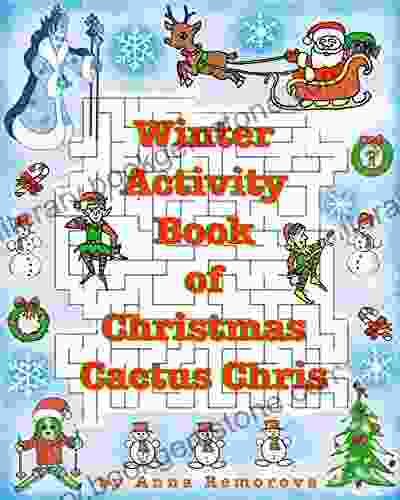
 Jeremy Cook
Jeremy CookSpot the Difference Mazes, Math Mazes, Word Puzzles, and...
Puzzle-solving activities have...

 Richard Wright
Richard WrightThe Scenic Geology Of Alberta
Alberta, a province in...

 Howard Blair
Howard BlairClaimed by the Highlander: A Journey of Love, Danger, and...
In the untamed and...

 Josh Carter
Josh CarterLearn Spanish For Beginners: A Comprehensive Guide
Embarking on the journey of learning Spanish...

 Christian Carter
Christian CarterPowerful Wealth Generating Methods You Can Use To Make A...
Are you looking for ways to generate wealth...
5 out of 5
| Language | : | English |
| File size | : | 21475 KB |
| Text-to-Speech | : | Enabled |
| Screen Reader | : | Supported |
| Enhanced typesetting | : | Enabled |
| Print length | : | 21 pages |


